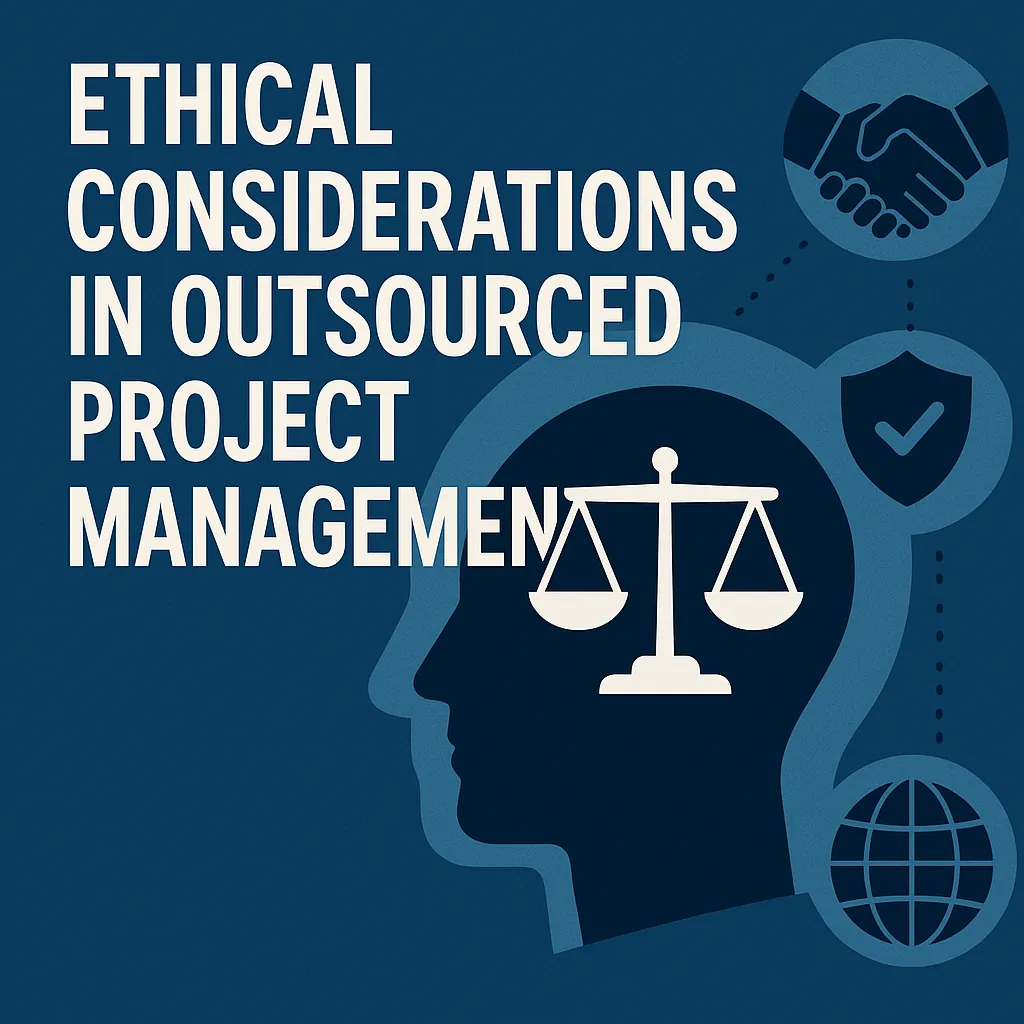Introduction to Outsourced Project Management
Outsourced project management refers to the practice of delegating the planning, execution, and oversight of projects to external organizations or individuals. This approach allows companies to leverage specialized skills and resources that may not be available in-house, ultimately aiming to enhance efficiency and effectiveness in project delivery.
Definition of Outsourced Project Management
Outsourced project management involves contracting external project managers or firms to handle specific projects or project components. This can include everything from project planning and execution to monitoring and reporting. By outsourcing, organizations can focus on their core competencies while relying on external expertise to manage complex projects.
Common Reasons Organizations Choose to Outsource Projects
Organizations opt for outsourcing project management for several reasons, including:
- Cost Efficiency: Outsourcing can reduce operational costs by eliminating the need for full-time staff and associated overhead expenses. This is particularly appealing for small to medium-sized enterprises that may not have the resources to maintain a large project management team.
- Access to Expertise: Many organizations lack the specialized skills required for certain projects. Outsourcing allows them to tap into a pool of experienced professionals who bring valuable knowledge and skills to the table.
- Focus on Core Business: By outsourcing project management, companies can concentrate on their primary business activities, leaving project execution to experts who can handle it more effectively.
- Scalability: Outsourcing provides flexibility, allowing organizations to scale their project management efforts up or down based on current needs without the long-term commitment of hiring permanent staff.
Brief Overview of the Benefits and Challenges of Outsourcing
While outsourcing project management offers numerous advantages, it also presents challenges that organizations must navigate:
Benefits:
- Increased Efficiency: External project managers often have established processes and methodologies that can lead to faster project completion and improved quality.
- Risk Mitigation: Outsourcing can help distribute risks associated with project execution, as external firms may have more experience in managing specific project-related challenges.
Challenges:
- Communication Barriers: Working with external teams can lead to misunderstandings and misalignments if communication is not effectively managed.
- Quality Control: Organizations must ensure that outsourced partners maintain high-quality standards, as lapses can affect the overall project outcome and the company’s reputation.
- Ethical Considerations: Outsourcing raises ethical questions, particularly regarding labor practices, data security, and the environmental impact of transferring responsibilities to external entities. Companies must be vigilant in addressing these issues to uphold their ethical standards and corporate social responsibility.
Understanding Ethical Frameworks in Project Management
Ethical considerations are paramount. As project managers and ethics officers navigate the complexities of outsourced project management, understanding various ethical frameworks becomes essential. This section will explore key ethical theories, the significance of ethical decision-making, and the critical role of ethics officers in addressing ethical dilemmas.
Overview of Ethical Theories
- Utilitarianism: This ethical theory emphasizes the greatest good for the greatest number. In project management, utilitarianism can guide decisions by evaluating the outcomes of outsourcing on all stakeholders, including employees, clients, and the community. Project managers must weigh the benefits of cost savings against potential negative impacts on worker welfare and job security [2].
- Deontology: This approach focuses on the morality of actions themselves rather than their consequences. In project management, deontological ethics can help ensure that decisions respect the rights and dignity of all individuals involved. For instance, adhering to fair labor practices and ensuring transparency in outsourcing agreements are critical components of a deontological approach [2].
- Virtue Ethics: This theory emphasizes the character and virtues of the decision-maker. In project management, fostering virtues such as integrity, accountability, and fairness can lead to more ethical decision-making processes. Project managers are encouraged to cultivate these virtues to guide their actions and influence their teams positively [2].
Importance of Ethical Decision-Making
Ethical decision-making in project management is crucial for several reasons:
- Trust and Reputation: Ethical practices build trust with stakeholders, including clients, team members, and the community. A strong ethical foundation enhances the reputation of the organization, which is vital in a competitive market [4].
- Risk Mitigation: By prioritizing ethical considerations, project managers can identify and mitigate risks associated with outsourcing, such as exploitation of workers and environmental harm. This proactive approach can prevent potential legal and reputational issues [4].
- Sustainable Practices: Ethical decision-making encourages sustainable practices that consider the long-term impacts of outsourcing on society and the environment. This aligns with the growing demand for corporate social responsibility [4].
Role of Ethics Officers
Ethics officers play a pivotal role in navigating ethical dilemmas in outsourced project management. Their responsibilities include:
- Guidance and Training: Ethics officers provide training and resources to project managers and teams, helping them understand ethical frameworks and apply them in decision-making processes [6].
- Policy Development: They are instrumental in developing and implementing ethical policies that govern outsourcing practices, ensuring compliance with legal and ethical standards [6].
- Monitoring and Accountability: Ethics officers monitor projects to ensure adherence to ethical guidelines and hold individuals accountable for unethical behavior. This oversight is crucial in maintaining the integrity of the project management process [6].
Ethical Implications of Outsourcing
Outsourced project management has become a prevalent practice in today’s global economy, offering businesses the opportunity to reduce costs and access specialized expertise. However, this approach also raises significant ethical considerations that must be addressed to ensure responsible management practices. Below are key ethical implications associated with outsourcing in project management:
- Labor Practices and Worker Exploitation: One of the foremost ethical concerns in outsourcing is the treatment of workers involved in the outsourced tasks. Companies often engage partners in countries with weaker labor laws, which can lead to exploitation, including inadequate wages, poor working conditions, and lack of job security. Ethical outsourcing necessitates that organizations ensure fair compensation and humane working conditions for all workers involved in the project, promoting economic growth and improving overall labor standards [5][14].
- Transparency and Communication: Effective communication is crucial in project management, especially when teams are dispersed across different geographical locations. Outsourcing can complicate transparency, as stakeholders may not have clear visibility into the processes and practices of the outsourced teams. This lack of transparency can lead to misunderstandings, misalignment of expectations, and potential conflicts. It is essential for project managers to establish clear communication protocols and maintain open lines of dialogue with all stakeholders to foster trust and accountability [9][10].
- Quality and Integrity of Deliverables: The pursuit of cost savings through outsourcing can sometimes compromise the quality and integrity of project deliverables. When organizations prioritize lower costs over quality, they risk delivering subpar products or services, which can damage their reputation and client relationships. Ethical project management requires a commitment to maintaining high standards, regardless of where the work is performed. This includes setting clear quality criteria and performance indicators in contracts and service level agreements (SLAs) to ensure that outsourced teams meet the expected standards [3][7][12].
Cultural Considerations and Ethical Outsourcing
Outsourcing project management has become a prevalent strategy for organizations seeking to enhance efficiency and reduce costs. However, it is crucial to address the ethical implications that arise, particularly concerning cultural differences. Understanding these cultural dynamics is essential for ethics officers and project managers to navigate the complexities of outsourced relationships effectively.
Understanding Cultural Norms and Values in Outsourcing Destinations
Cultural norms and values significantly influence how business is conducted in different regions. Each outsourcing destination has its unique set of beliefs, practices, and expectations that can affect project management outcomes. For instance, communication styles may vary widely; some cultures may favor direct communication, while others may prioritize indirect approaches. Recognizing these differences is vital to avoid misunderstandings that could lead to ethical dilemmas, such as misinterpretation of intentions or disrespect towards local customs [4][11].
The Importance of Cultural Sensitivity and Awareness in Managing Outsourced Teams
Cultural sensitivity is paramount in managing outsourced teams. Project managers must cultivate an awareness of cultural differences to foster a collaborative environment. This includes being mindful of varying work ethics, decision-making styles, and communication preferences. A lack of cultural awareness can lead to conflicts, reduced team cohesion, and ultimately, project failure [4][8]. Ethical outsourcing involves not only respecting these differences but also actively engaging with them to create an inclusive and respectful workplace [7][9].
Case Studies Demonstrating Cultural Clashes and Their Ethical Implications
Several case studies illustrate the ethical implications of cultural clashes in outsourced project management. For example, a multinational company faced significant challenges when its project team in a Western country failed to recognize the importance of hierarchical decision-making in its Asian partner’s culture. This oversight led to frustration and a breakdown in communication, ultimately jeopardizing the project’s success. Such scenarios highlight the necessity of understanding and respecting cultural differences to avoid ethical pitfalls [4][12].
Another case involved a software development project where cultural insensitivity towards local labor practices resulted in accusations of exploitation. The outsourcing company had not ensured that its partners adhered to fair labor standards, leading to public backlash and reputational damage. This situation underscores the importance of ethical considerations in labor practices and the need for companies to ensure that their outsourcing partners uphold ethical standards [2][8].
Strategies for Ethical Outsourcing
Outsourcing can present significant ethical challenges. To navigate these complexities, project managers must adopt actionable strategies that promote ethical practices throughout the outsourcing process. Here are some key strategies to consider:
- Developing a Robust Vendor Selection Process: Establish a comprehensive vendor selection framework that prioritizes ethical standards. This includes evaluating potential partners based on their labor practices, environmental impact, and adherence to fair compensation policies. By ensuring that vendors align with ethical values, project managers can mitigate risks associated with exploitation and unfair treatment of workers [2][7].
- Monitoring and Auditing Practices: Implement regular monitoring and auditing of outsourced operations to ensure compliance with established ethical guidelines. This could involve conducting site visits, reviewing labor practices, and assessing working conditions. By actively overseeing the outsourcing process, project managers can identify potential ethical breaches and take corrective actions promptly [6][8].
- Fostering Open Communication and Collaboration: Encourage transparent communication between project teams and outsourced partners. This includes sharing expectations, discussing ethical concerns, and fostering a culture of collaboration. By building strong relationships based on trust and mutual respect, project managers can create an environment where ethical practices are prioritized and upheld [5][9].
By integrating these strategies into their project management practices, project managers can not only enhance the ethical integrity of their outsourcing arrangements but also contribute to a more sustainable and responsible business environment.
Recommendations for Ethics Officers and Project Managers
Outsourcing project management can lead to significant benefits, such as cost savings and access to specialized expertise. However, it also raises critical ethical concerns that must be addressed to ensure responsible practices. Here are tailored recommendations for ethics officers and project managers to navigate these ethical implications effectively:
- Creating a Culture of Ethics:n It is essential to foster an ethical culture within both the project team and outsourced partners. This involves establishing clear ethical guidelines and expectations that align with the organization’s values. Regular discussions about ethical practices can help reinforce these standards and encourage team members to voice concerns without fear of retaliation. By promoting transparency and accountability, project managers can cultivate an environment where ethical behavior is prioritized and rewarded [10][12].
- Encouraging Continuous Education on Ethics: Continuous education on ethical practices in project management is vital. Ethics officers should implement training programs that cover relevant topics, such as human rights, labor conditions, and environmental sustainability. This education should not only be directed at internal teams but also extended to outsourced partners to ensure a shared understanding of ethical standards. By keeping all stakeholders informed and engaged, organizations can better navigate the complexities of ethical outsourcing [6][12].
- Building a Framework for Addressing Ethical Issues: Developing a robust framework for addressing ethical issues as they arise in outsourced projects is crucial. This framework should include clear procedures for reporting and resolving ethical dilemmas, as well as mechanisms for evaluating the ethical implications of outsourcing decisions. Ethics officers and project managers should collaborate to create a responsive system that allows for timely intervention and resolution of ethical concerns, thereby minimizing potential risks associated with outsourcing [10][11].
By implementing these recommendations, ethics officers and project managers can effectively manage the ethical challenges associated with outsourced project management, ensuring that their practices align with both organizational values and societal expectations.
Conclusion
Ethical considerations play a pivotal role in shaping the practices and outcomes of projects. As we have explored, the ethical implications of outsourcing encompass several critical areas:
- Fair Labor Practices: Ensuring that outsourcing partners provide fair wages and acceptable working conditions is paramount. This not only protects workers but also enhances the reputation of the outsourcing company [2][12].
- Exploitation Risks: The potential for worker exploitation remains a significant concern. Companies must actively work to prevent any form of exploitation and ensure that their outsourcing practices do not harm local communities [11][12].
- Information Security: Protecting sensitive data is essential, especially in an era where cybersecurity threats are prevalent. Project managers must ensure that their outsourcing partners adhere to strict data protection standards [9][11].
- Transparency and Accountability: Maintaining transparency in outsourcing relationships fosters trust and accountability. Project managers should establish clear communication channels and expectations with their partners [9][10].
As we conclude, it is imperative for project managers and ethics officers to prioritize ethical considerations in their outsourcing strategies. By doing so, they not only safeguard the interests of their projects but also contribute to a more ethical business environment.
We encourage all stakeholders in the project management field to engage in discussions about ethical practices. Sharing insights and experiences can lead to the development of better frameworks and guidelines that promote ethical outsourcing. Together, we can foster a culture of integrity and responsibility in project management, ensuring that the benefits of outsourcing are realized without compromising ethical standards.
Find out more about Shaun Stoltz https://www.shaunstoltz.com/about/.
This post was written by an AI and reviewed/edited by a human.



